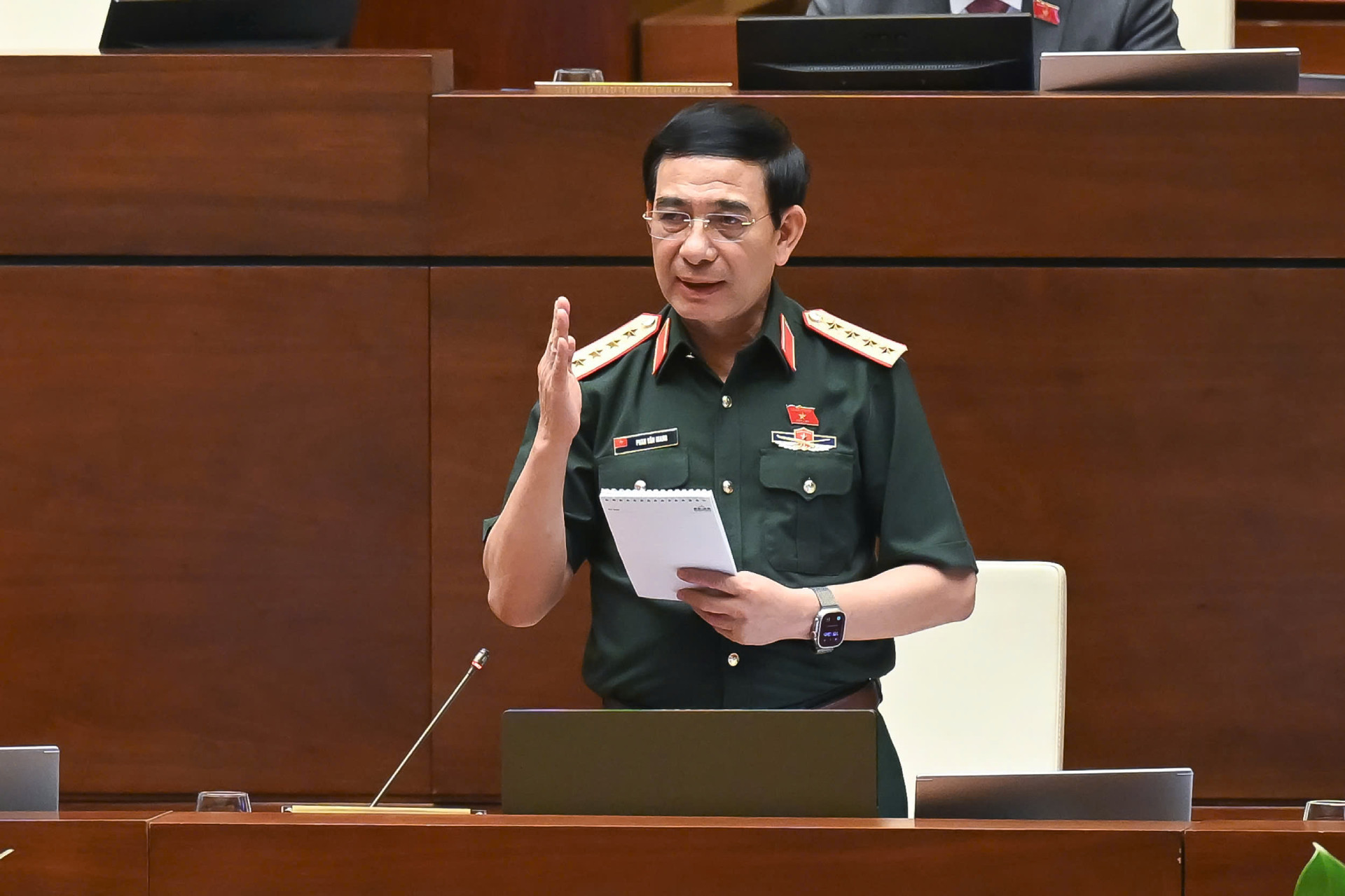During a June 16 National Assembly session on the draft law regarding participation in UN peacekeeping operations, General Phan Van Giang, Minister of National Defense, shared heartfelt reflections on the dedication and sacrifices of Vietnamese female peacekeepers.
General Giang expressed appreciation for the proposed policy support for women in peacekeeping, stating, "If the hardship at home is one, then abroad it’s seven, eight, sometimes even ten."

Vietnam began preparations for UN peacekeeping in 2012, sending its first two officers - Lt. Col. Mac Duc Trong and Lt. Col. Tran Nam Ngan - to South Sudan in 2014. By 2018, the country had deployed military medical personnel, followed by engineers in 2022, serving in missions in the Central African Republic and South Sudan.
Describing South Sudan as one of the world’s youngest and most underdeveloped nations, General Giang noted the challenging conditions and poor infrastructure. Despite these hardships, Vietnamese peacekeepers have gone beyond their assigned duties, conducting outreach, building schools, teaching, and even sewing face masks for locals during the COVID-19 pandemic.
Over 1,000 Vietnamese personnel have joined peacekeeping missions, including many female soldiers - some volunteering for multiple tours. “Their spirit is remarkable,” said General Giang.
He recounted a story from Mac Duc Trong, who regretted not finishing a house for a teacher before his mission ended. “They used wooden shipping crates for building materials,” the general added, highlighting the ingenuity and compassion of the Vietnamese forces.
The Minister also acknowledged proposals from lawmakers to enhance policies for peacekeepers. He stressed the risks involved, such as exposure to diseases and harsh climates, and shared that most Vietnamese peacekeepers contract malaria during service.
Female officers returning from missions have received early promotions and new roles, including one now serving as Deputy Head of the Military Women's Committee and another promoted from captain to major.
Vietnam has also supported peacekeeping capacity-building for neighboring countries like Laos. Funding for training and equipment is covered by the state, while the UN provides allowances and other benefits once personnel are deployed abroad.
“UN missions have asked Vietnam to contribute additional forces, including civilian personnel,” General Giang said. The draft law aims to institutionalize this expansion. However, most Vietnamese officers serve the standard two-year term, with only a few extended to a third year - a testament to their exceptional service.
General Giang concluded, “This force may face only one hardship at home, but abroad, it's seven, eight, even ten times harder.”
Tran Thuong